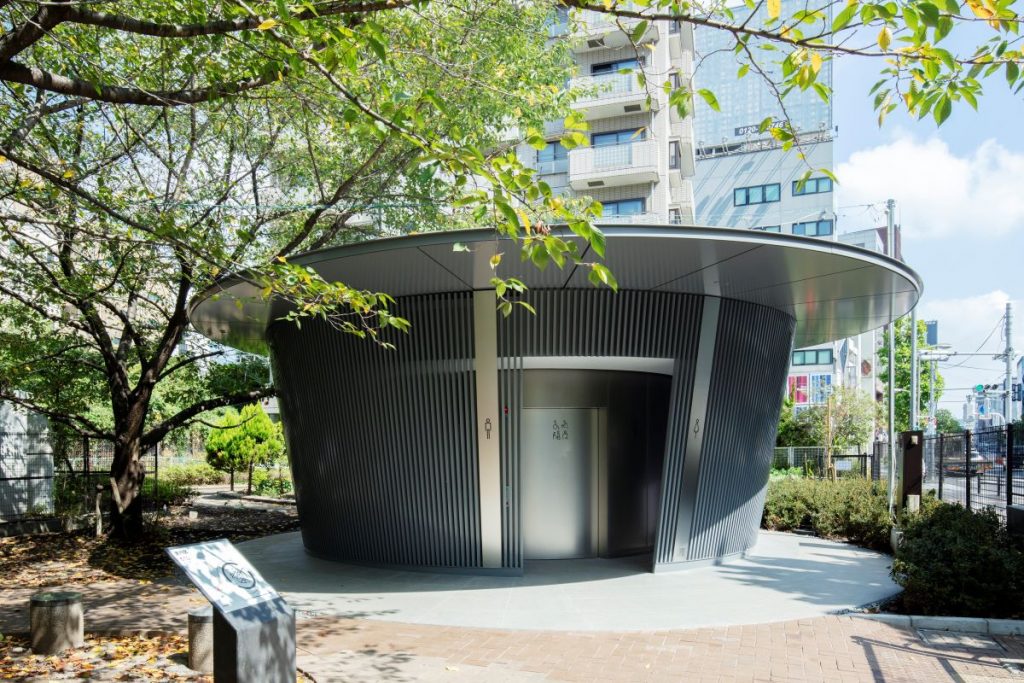このページを 日本語 で読む
Public toilets in Japan are being transformed.
At the Cannes Film Festival in May 2023, actor Koji Yakusho received the prestigious Best Actor award for his performance in the film Perfect Days, directed by Wim Wenders.
The movie portrays the daily life of a cleaner working in a public toilet in Tokyo. Notably, the filming took place in a facility that is part of The Tokyo Toilet project. The project's aim is to install clean public toilets throughout Shibuya Ward.
Following the film's acclaim in Cannes, these unique toilets have garnered increased attention for their fusion of art and public facilities.
Safer and Cleaner Public Toilets
Akiko Yamada of The Nippon Foundation emphasizes the project’s objective. "We aim to change the negative perception of public toilets as dark, scary, and dirty," she said.
In 2017, The Nippon Foundation and Shibuya Ward signed an agreement to address societal problems through social innovation. As one part of this agreement, The Tokyo Toilet project was initiated to install hygienic public toilets throughout Shibuya Ward.
The project’s goal is to create public toilets that can be used comfortably by individuals of all genders, ages, and abilities. As of March 2023, 17 facilities within the ward have been successfully renovated.
Sixteen world-renowned architects and designers have participated in the project. Tadao Ando, who designed Omotesando Hills complex, and Kengo Kuma, who designed Japan's new National Stadium, are among them.
Each toilet facility showcases a distinctive design. The Higashi Sanchome Public Toilet, located on a small triangular plot alongside the tracks of the JR Yamanote Line, has an eye-catching all-red exterior.
"Women often hesitate to use public toilets due to concerns about safety and crime. Making the exterior walls conspicuous in color also serves a security purpose," Yamada explains.
The Nabeshima Shoto Park Toilet, designed by Kuma, is harmoniously integrated into the lush greenery of the park. Its exterior boasts approximately 240 panels of Yoshino cedar, while the interior incorporates materials like recovered cherry and dawn redwood wood waste.
This facility impresses not only with its aesthetically striking design but also with the thoughtful craftsmanship that ensures a pleasant user experience.
A Growing Trend Nationwide
Inquiries have flooded in from local governments following the film festival award. Yamada acknowledges, "The challenge lies not only in installation but also in the maintenance and management of these facilities."
Public toilets are typically cleaned once a day. Overcoming the prevailing perception of public toilets as "dirty" necessitates meticulous upkeep and management practices.
Facilities managed by The Tokyo Toilet project are cleaned two to three times daily. In addition, they undergo a monthly standard cleaning and an annual special cleaning. Moreover, monthly visits by "toilet inspectors" ensure any problems are discovered.
A council of project stakeholders convenes monthly to review cleaning reports and facility usage. This information is applied to ongoing improvements in maintenance and management.
Yamada's enthusiasm for the project is obvious.
"Finding effective ways to maintain public toilets is our challenge. Japanese toilets are often praised for their cleanliness, but public toilets seldom receive attention. We are determined to shift away from the conventional perception and promote toilet facilities in a positive light. The more people who use them, the better," she added.
For a closer look at Tokyo's innovative public toilets, check out [A Photographer's Notes] 'The Tokyo Toilet' Project's Urban Invitation, by Jason Halayko on JAPAN Forward.
このページを 日本語 で読む
